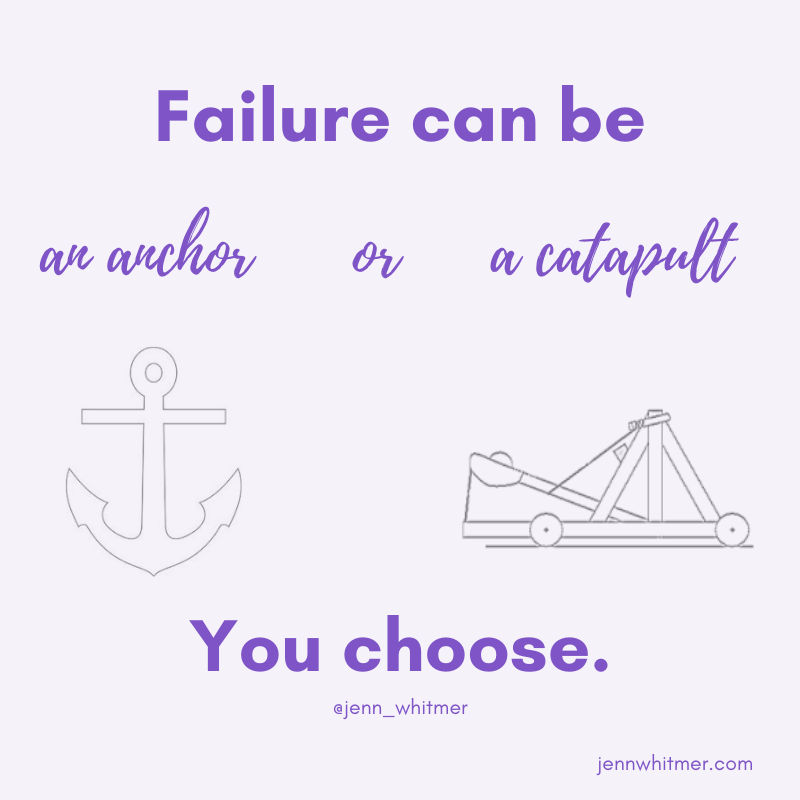I had a couple big setbacks this week. They didn’t happen suddenly, but they crashed on the same day.
One involved a client where I didn’t set clear expectations, so I didn’t meet theirs. Now I’ve lost a client.
One involved my lack of follow-through, almost costing my child the first day of school. Don’t worry, she was there, all smiles!
I could let these failures sit in my gut, anchoring me to the pain and stopping my growth.
OR
I could own my failures, understanding what needs to change to catapult me forward.
I mean, I don’t know about you, but I really hate being trapped in pain. (Can I get an amen from all the enneagram 7s out there?)
I’m choosing to learn. To be brutally honest, own my part, and commit to change.
Failure can be an anchor. Or it can be a catapult. I’m choosing to launch.
1. Clarity of expectations must be clear for everyone.
I thought I had been clear upfront with my client about what I was able to create and execute and what I could not do. While it was clear for me, I did not continue to clarify boundaries as the project moved forward. It’s my role to serve my client with clear expectations and ensure we align.
2. Status meetings are important.
I didn’t schedule regular check-ins with my client, allowing communication to be at the client’s pace. That did not serve my client. Regular, focused meetings keep everyone on the same page and moving forward.
3. Follow-up communication is kind.
I did not send information after every meeting that outlined action items and responsibilities. This would have avoided confusion over expectations and facilitated conversations to bring clarity.
4. I have finite time and mental capacity.
I cannot keep all. the. things. in my head. I must use the organizational tools that I know work for me to function well. Although rhythms of rest are vital, escapism and procrastination are destructive. All of life is not reading at the pool in the warm sunshine (OH, but can it be?!?)
5. My actions always impact others.
My procrastination at home almost cost my daughter her first day of school. My failure to provide clear expectations impacted my client’s visibility in the market. Megan Baca says, “The true arrogance of procrastination is the assumption that God will have all the people you were meant to impact, just wait around until you feel like making a move.”
The thing is, I had learned these lessons before — but I ignored them. I took on a project I knew wasn’t a good fit because I really liked the client. I avoided my priorities because I was overwhelmed. I didn’t say no, to myself and others, because I didn’t want to disappoint anyone. I saw the warning signs, but didn’t correct my course.
The ruthless honesty to understand why these setbacks happened is the tension that fuels the catapult. Wind down to the why, the more energy you have to launch.

COMMENTs:
0